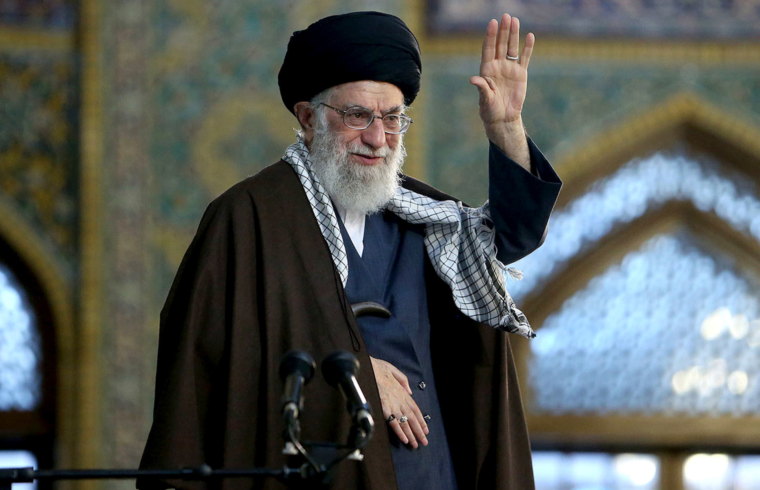Time for him to drink from the “cup of poison.” Photograph: Associated Press
Photograph: Associated Press
Forty years since the Islamic Revolution toppled Iran’s monarchy, the country has little to celebrate. The theocracy has endured, but it has failed miserably to live up to the enormous potential of Iran’s resources, human as well as petrochemical. There’s been little political progress: Voters elect a president and parliament every four years, but real power still rests with a clerical clique led by Supreme Leader Ayatollah Ali Khamenei.
Iran’s adventurous foreign policy has bought influence in the Middle East from Syria to Yemen, but at great cost in lives and treasure — at a time when the regime can ill afford it. It has also provoked lasting Arab hatred for Tehran.
At the celebrations today, the regime’s leaders will doubtless blame foreign enemies — especially the U.S. — for their isolation. But the Iranian people have grown increasingly dissatisfied with their rulers’ corruption and mismanagement. Young Iranians are especially anxious about falling behind the rest of the world.
What’s perhaps most distressing is that they cannot reasonably expect things to get better. The U.S. and most Arab states have lately become even more hostile, all but ensuring that Iran will remain marooned from the global flow of commercial and social development.
Iran’s leaders should use the anniversary to take a hard look at the dead end into which they’ve led their people, and consider turning toward normal interaction with the world. They might start by releasing political prisoners and allowing Iranians greater freedom of expression. Opening negotiations with the U.S. for a new nuclear-arms deal — by accepting restrictions on missile development and renouncing hostile behavior in the region, pledging especially not to threaten Israel’s security — would loosen the economic straitjacket in which Iran finds itself. Curtailing support for wars in Syria and Yemen would demonstrate a commitment to ending bloodshed in the Middle East.
None of this would be easy. Lacking any legitimate mandate from their people, Iran’s leaders attach great pride and prestige to what they regard as perseverance. Perhaps they might draw inspiration from the Islamic Republic’s founding cleric Ayatollah Ruhollah Khomeini, who in 1988 found himself in similar circumstances. After eight years of a pointless and costly war with Iraq, he realized that the stalemate was damaging his people’s future, and agreed to negotiate a truce. Famously, he likened it to drinking from a “cup of poison.”
Today his successors have good reason to drink again.
—Editors: Bobby Ghosh, Mary Duenwald.
To contact the senior editor responsible for Bloomberg Opinion’s editorials: David Shipley at
davidshipley@bloomberg.net
.











